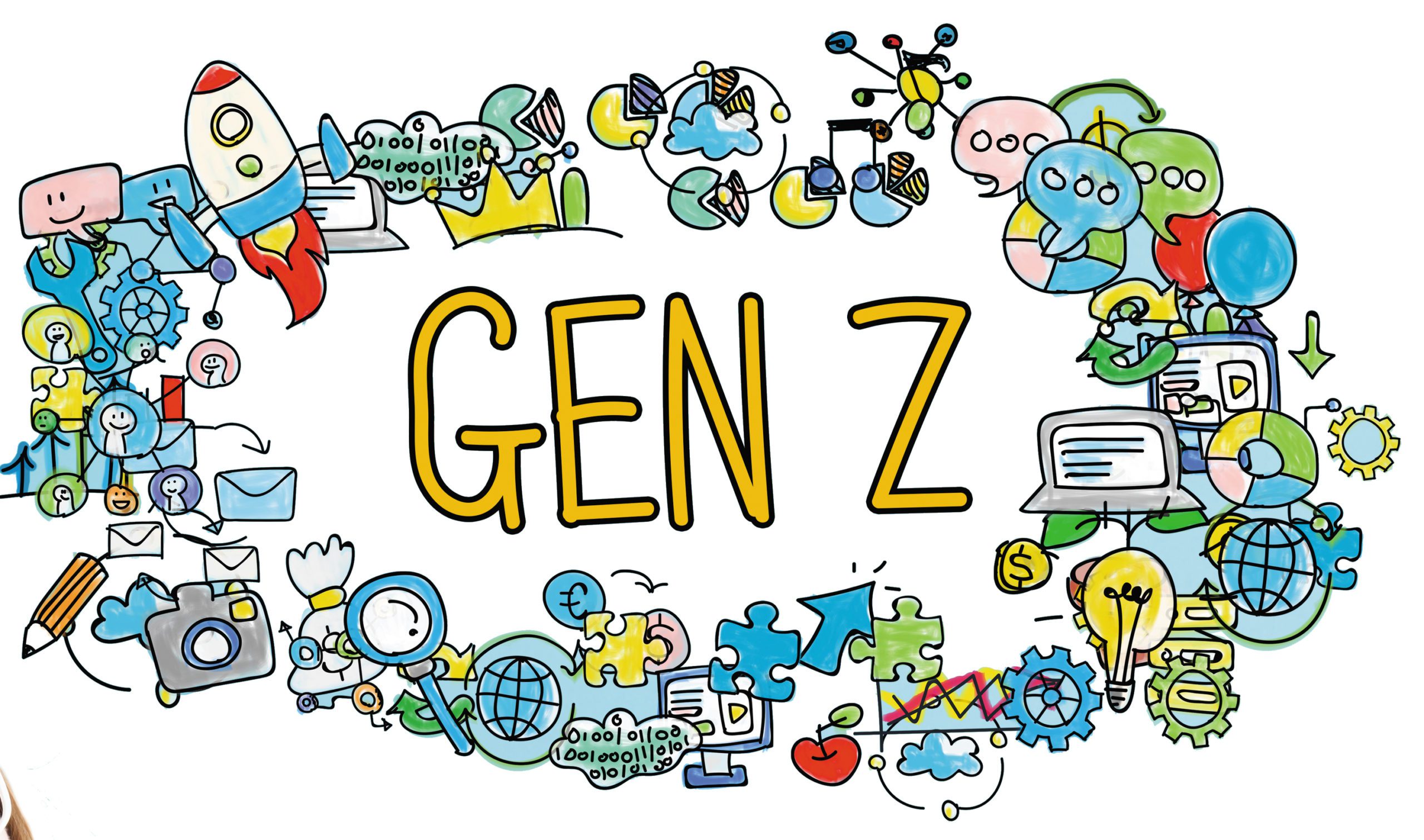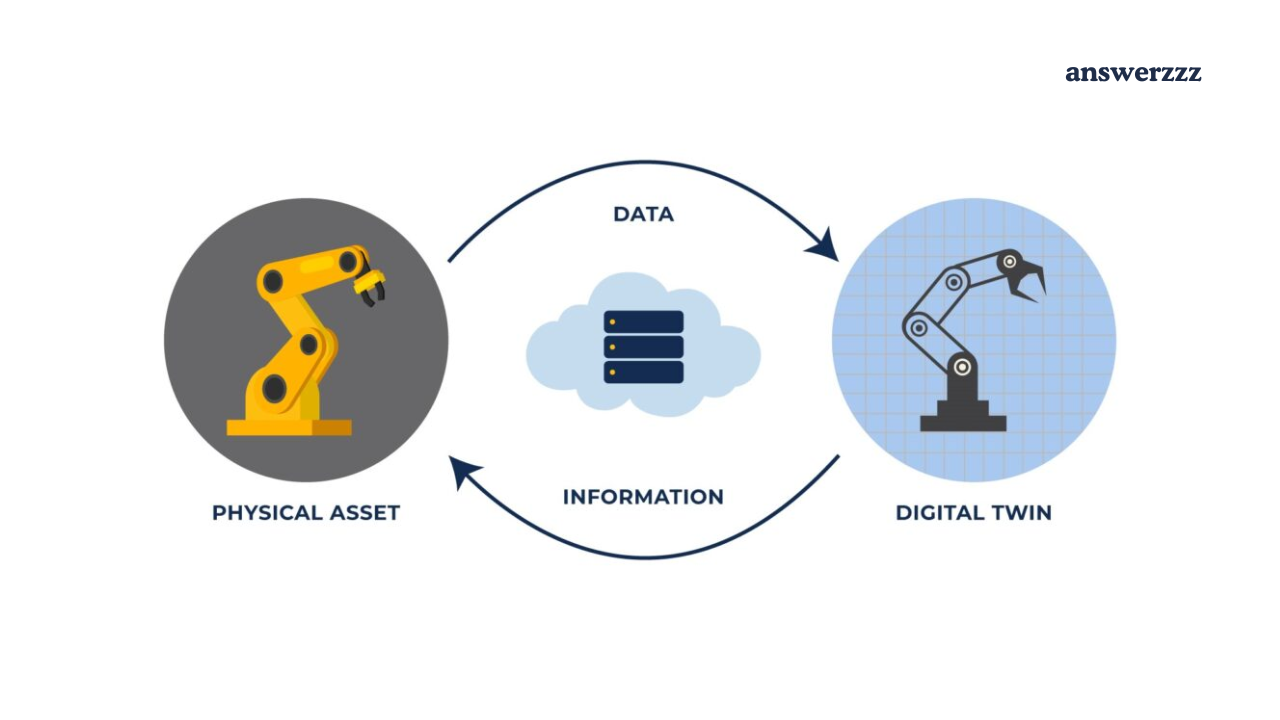Generation Z, often defined as individuals born between the mid-1990s and early 2010s, is the first generation to grow up in a world where digital technology permeates nearly every aspect of life. Unlike Millennials, who witnessed the birth of the Internet and the rise of social media, Gen Z has been immersed in technology since childhood. This “digital native” status has given Gen Z unique insights, attitudes, and expectations when it comes to technology—traits that are reshaping industries worldwide. As Gen Z increasingly enters the workforce and begins influencing consumer trends, their preferences, skills, and values are becoming essential drivers in the evolution of the tech sector.
In this article, we’ll explore the characteristics of Gen Z, examine how they’re influencing the development of new technologies, and delve into the potential impacts of their tech-centric lifestyle on the future.

1. Characteristics of Gen Z: The Digital Native Advantage
Gen Z is distinguished by their early exposure to digital tools and connectivity. This background has shaped their approach to technology, work, and communication in several key ways:
- Comfort with Technology: Gen Z is extremely comfortable using technology for daily tasks and entertainment. From a young age, they’ve interacted with smart devices, social media, and streaming platforms, making technology an extension of their social and personal lives.
- Innovation-Driven Mindset: Gen Z values innovation and prefers to engage with cutting-edge technology. This generation gravitates toward companies that foster creativity and leverage emerging technologies.
- Preference for Personalization: With the rise of AI and machine learning, Gen Z has grown accustomed to personalized digital experiences. They expect services and products to adapt to their preferences, be it through curated social feeds, custom playlists, or tailored ads.
- Emphasis on Social and Environmental Responsibility: Growing up during a period of increased awareness around social justice and environmental issues, Gen Z expects technology companies to embrace values-driven business practices.
These traits mean Gen Z is not only consuming technology but also transforming it. Let’s explore how these unique characteristics are shaping the future of tech.
2. Social Media and Communication: Redefining Interaction
Gen Z’s approach to communication diverges significantly from previous generations. They favour platforms that enable fast, visually driven, and authentic interactions. This has led to the rise of social media apps like TikTok, Snapchat, and Instagram, which focus on short-form content and real-time engagement.
- The Rise of Visual and Ephemeral Content: Gen Z’s preference for visual media, such as images and short videos, has influenced the popularity of platforms like TikTok and Instagram Stories. These platforms have adjusted to Gen Z’s demand for authenticity and creativity, allowing users to create dynamic content that feels less polished than traditional media.
- Augmented Reality (AR) in Social Media: Gen Z’s interest in immersive experiences has driven social media apps to experiment with AR filters and virtual effects. From fun face filters on Snapchat to branded AR experiences on Instagram, Gen Z’s engagement with AR has normalized these technologies and encouraged brands to incorporate them into their marketing strategies.
- Increased Demand for Privacy: Gen Z values privacy more than previous generations and is wary of platforms that don’t protect their data. Apps like Snapchat, which offers disappearing messages, and emerging platforms that focus on user control, are gaining traction with Gen Z.
Through their engagement with social media, Gen Z has influenced a shift in how tech companies develop communication tools, focusing on instant, visually engaging, and private interactions.
3. The Gig Economy and Remote Work: A New Approach to Employment

Gen Z is entering the workforce with distinct views on career development, flexibility, and technology. Their influence is driving major changes in workplace technology and the structure of employment.
- Embracing the Gig Economy: Gen Z values independence and flexibility, leading many of them to pursue freelance and gig-based work. Platforms like Fiverr, Upwork, and Etsy have flourished in response, creating a tech-driven marketplace for freelancers and entrepreneurs.
- Demand for Remote Work and Hybrid Models: The COVID-19 pandemic accelerated the acceptance of remote work, and Gen Z has adopted this mode with enthusiasm. Tech companies have responded by investing in collaboration tools like Zoom, Slack, and Microsoft Teams to accommodate distributed teams.
- The Rise of the “Side Hustle” Culture: Gen Z often diversifies their income through side hustles, using online platforms to monetize their skills. For example, young content creators use YouTube and TikTok for revenue, while aspiring entrepreneurs utilize platforms like Shopify and Patreon to launch their brands.
Gen Z’s affinity for flexible work and entrepreneurship has spurred the growth of platforms that support gig work, remote collaboration, and e-commerce, altering the structure of work in the tech industry.
4. Consumer Electronics and Wearable Tech: Demand for Integration and Innovation
Gen Z’s expectations for personalized and multifunctional technology are influencing the consumer electronics market. They value technology that integrates seamlessly into their lives and provides unique, tailored experiences.
- Wearables and Health Tracking: Fitness and health have become important to Gen Z, with many seeking ways to integrate wellness into their daily routines. As a result, wearable tech companies, such as Apple with its Apple Watch, and fitness apps like Strava are capitalizing on this trend, offering devices that monitor health metrics and connect with apps to track progress.
- Sustainable and Ethical Tech: Environmentally conscious, Gen Z prefers companies that prioritize sustainability. Brands like Apple and Google have increased their efforts toward eco-friendly products, sourcing sustainable materials, and reducing carbon emissions in response to this demand.
- The Impact of 5G and Connectivity Expectations: Gen Z is eager for rapid, reliable connectivity, which is further fueling demand for 5G networks. This shift towards faster networks allows for the expansion of streaming, gaming, and real-time collaboration apps that rely on high-speed connections.
Through their consumer choices, Gen Z has signalled a clear preference for sustainable, innovative, and interconnected technology, prompting tech companies to prioritize these qualities.
5. Evolving Digital Skills: The Code-Savvy Generation
Growing up with access to a wealth of online educational resources, Gen Z has been exposed to coding, digital literacy, and other technical skills from an early age. This comfort with tech skills is shaping educational and workforce expectations.
- Increased Focus on Coding Education: Gen Z has shown a strong interest in learning to code, with many high schools and online platforms offering courses in programming, data science, and app development. Tech companies have responded by creating beginner-friendly coding tools and platforms such as Scratch, Code.org, and Khan Academy.
- Open-Source and Collaborative Development: Gen Z’s collaborative approach to learning has influenced the popularity of open-source projects. Platforms like GitHub, Stack Overflow, and even Reddit provide Gen Z developers with a space to share knowledge, collaborate, and innovate on projects.
- Influencing the STEM Pipeline: As a generation with a high representation of women and minorities in tech, Gen Z is helping to push diversity in STEM fields. This movement is encouraging tech companies and educational institutions to focus on inclusive initiatives.
By prioritizing digital skills and embracing a collaborative, open-source mindset, Gen Z is setting the stage for a more inclusive and tech-savvy future.
6. Ethical Technology and Digital Activism: A Generation with a Cause

One of the most defining traits of Gen Z is their strong sense of ethics and desire for social justice. This extends to their interactions with technology, where they advocate for responsible practices and ethical business models.
- Emphasis on Data Privacy: Gen Z’s concern over data privacy has driven tech companies to adopt more transparent data practices. As privacy legislation grows globally, Gen Z’s pressure on companies to protect user information is helping to shape policies around data handling.
- Digital Activism and Social Justice: Gen Z leverages social media platforms as tools for activism, raising awareness on issues from climate change to racial equality. This has led platforms like Instagram, Twitter, and TikTok to incorporate tools for advocacy, including fundraising capabilities and features to amplify social movements.
- Demand for Ethical AI and Algorithms: Gen Z’s awareness of the potential biases in AI has fueled conversations around ethical AI practices. Companies are being held accountable for algorithmic biases, prompting them to invest in more transparent and fair AI development.
By prioritizing ethical standards and leveraging digital tools for activism, Gen Z is holding the tech industry accountable, pushing for more equitable and transparent technologies.
7. The Future of Technology: Gen Z’s Vision of Tomorrow
Gen Z’s influence on technology is set to grow as they continue to shape trends and join the ranks of tech developers, engineers, and entrepreneurs. Here are a few ways Gen Z is expected to continue driving tech innovation in the future:
- Increased Integration of AI in Daily Life: With their openness to AI-powered personalization, Gen Z will likely lead the integration of AI in daily experiences, from smart home devices to personalized educational platforms.
- Expansion of the Metaverse and Virtual Reality: Gen Z’s enthusiasm for immersive experiences positions them as a driving force behind the metaverse and virtual reality. This interest could transform entertainment, gaming, education, and even social interactions in the digital realm.
- Reinforcement of Sustainability and Ethical Standards: As consumers and employees, Gen Z will push companies to maintain high standards for sustainability and ethical responsibility, leading to more environmentally friendly tech practices.
Gen Z’s digital fluency, ethical mindset, and creativity will undoubtedly continue to influence the tech industry in profound ways. They are a generation unafraid to challenge the status quo, embracing new technologies with enthusiasm while demanding greater accountability from tech companies.
Gen Z’s Impact on the Tech World
Gen Z’s integration into the workforce and consumer market is fundamentally reshaping the landscape of technology. As the generation that has grown up online, they are redefining expectations around social media, digital skills, employment flexibility, and ethics. Their influence is steering technology towards more personalized, immersive, and responsible directions, highlighting the power of a generation that prioritizes both innovation and integrity.

As Gen Z takes on more influential roles within the tech industry, we can expect them to continue driving change, championing technologies that not only push the boundaries of innovation but also align with their values of social responsibility, sustainability, and inclusivity. Gen Z is not just shaping the future of tech; they’re shaping a future where technology is an instrument for both personal empowerment and global progress.



